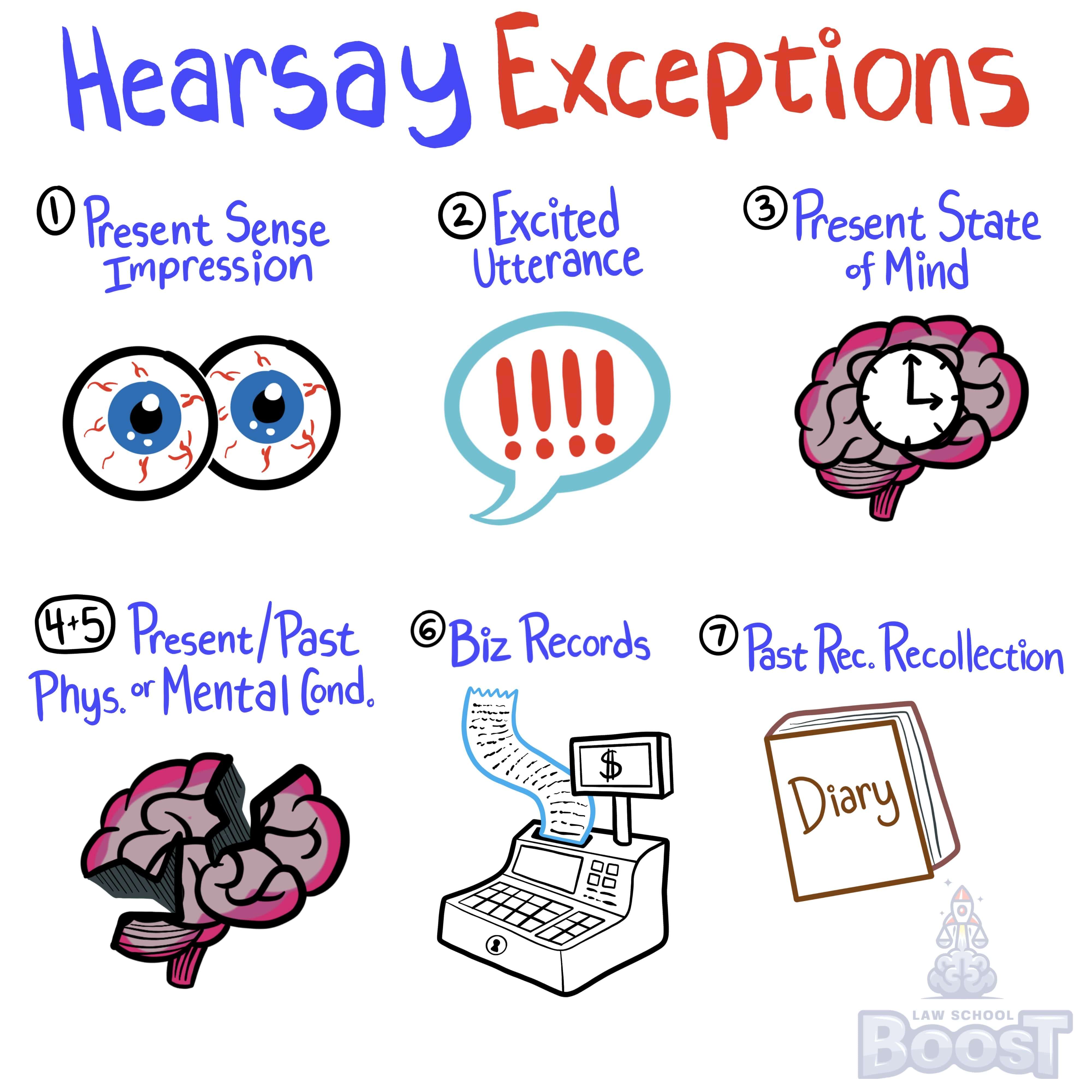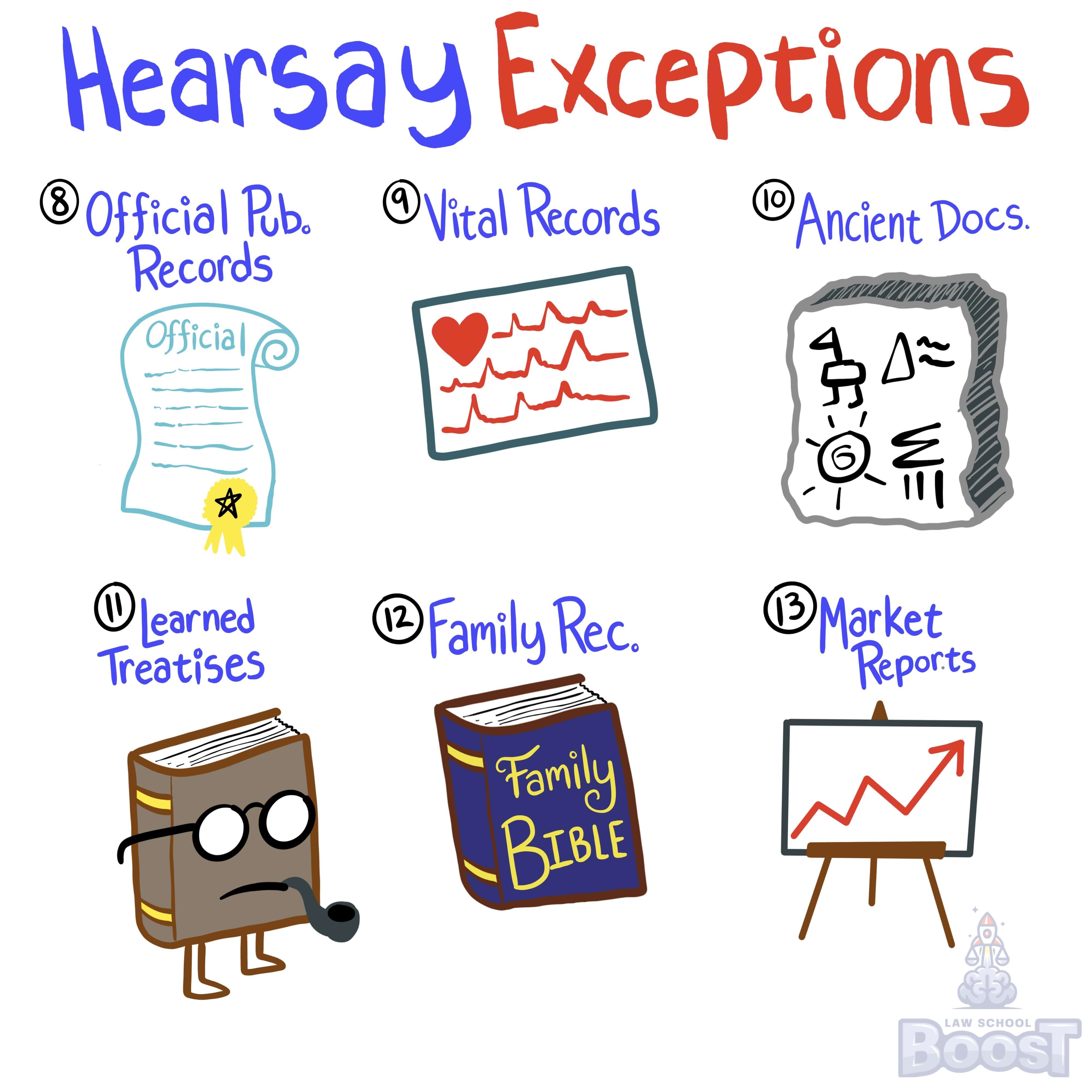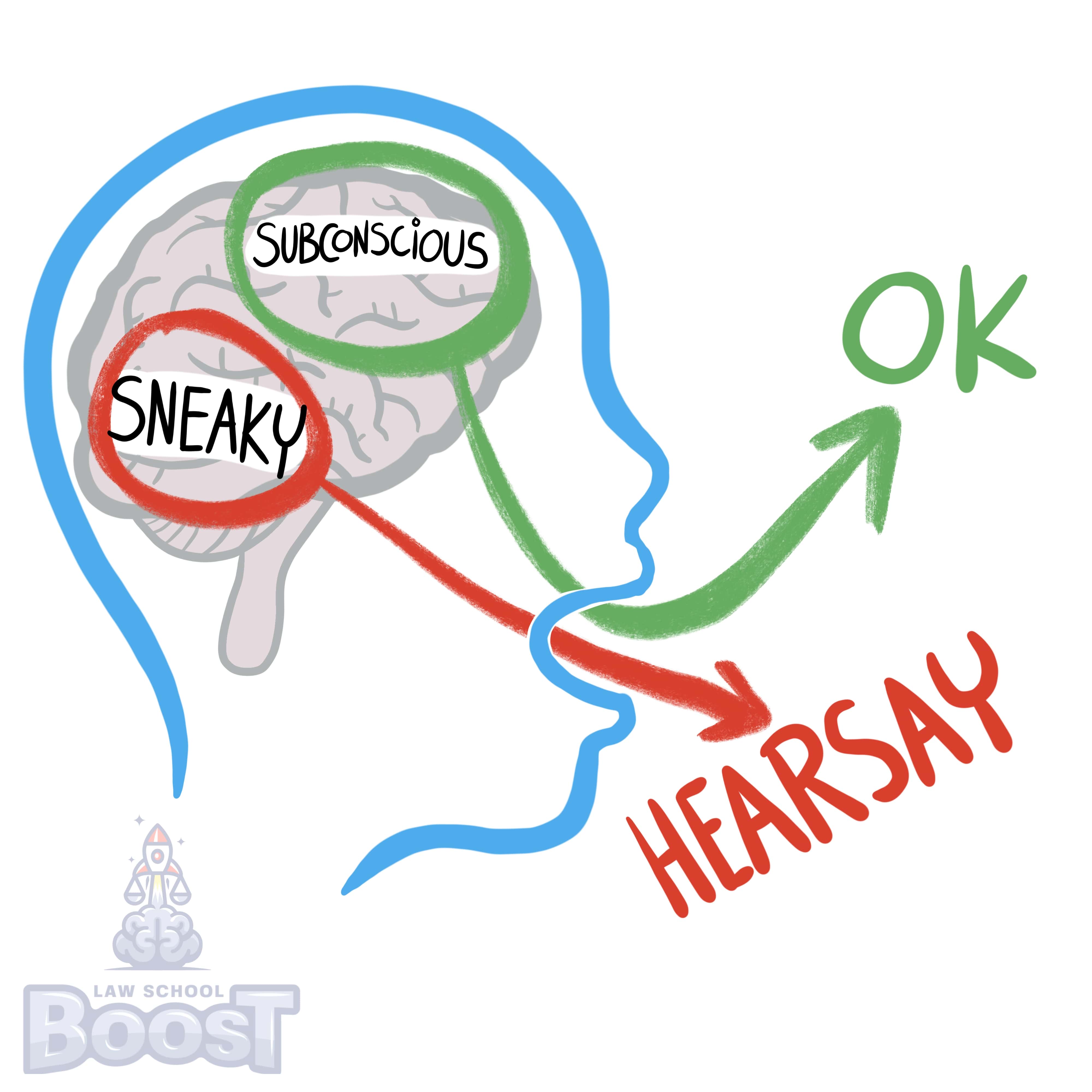🦅
Federal Evidence • Hearsay Exceptions - Unavailability Required
EVID#039
Legal Definition
The statement of personal or family history hearsay exception is a statement about the declarant's—or another's—birth, adoption, legitimacy, ancestry, marriage, divorce, relationship by blood, etc.
The witness must be unavailable.
The witness must be unavailable.
Plain English Explanation
This rule allows statements about important life events like births, marriages, divorces, family relationships, etc. to be used as evidence in court, even if the person who originally made the statement is not present to testify. The rationale is that these types of statements are usually made in situations where the speaker has no reason to lie, so they can be considered reliable evidence. However, the person who heard the statement (the witness) must be unavailable to testify for some reason in order for the hearsay statement itself to be admissible.
Hypothetical
Hypo 1: Bob claims he's entitled to an inheritance from his great uncle's estate. He presents a statement from his late mother, who had mentioned in her diary that Bob was the favorite nephew. Result: The statement about the family relationship and Bob's position as the favorite nephew, written by Bob's late mother, can be used in court under the hearsay exception for personal or family history, even though Bob's mother isn't available to testify.
Hypo 2: Sam is in a legal dispute over the ownership of a piece of land. He uses a letter from his deceased grandfather that details the family's possession of the land since his birth. Result: The grandfather's letter can be admitted as evidence under the personal or family history exception to the hearsay rule, despite the grandfather being unavailable to testify.
Hypo 5: Bob is being sued for a contract breach. He tries to use a statement from his late father about a business deal unrelated to the contract. Result: The father's statement is not admissible under the personal or family history exception because it doesn't concern Bob's or his father's personal or family history but rather a business transaction.
Hypo 2: Sam is in a legal dispute over the ownership of a piece of land. He uses a letter from his deceased grandfather that details the family's possession of the land since his birth. Result: The grandfather's letter can be admitted as evidence under the personal or family history exception to the hearsay rule, despite the grandfather being unavailable to testify.
Hypo 5: Bob is being sued for a contract breach. He tries to use a statement from his late father about a business deal unrelated to the contract. Result: The father's statement is not admissible under the personal or family history exception because it doesn't concern Bob's or his father's personal or family history but rather a business transaction.
Visual Aids



Related Concepts
Does California recognize the statement of personal or family history hearsay exception?
How does the dying declaration hearsay exception differ in California?
How does the former testimony hearsay exception differ in California?
How does the statement against interest hearsay exception differ in California?
How does the statement offered against party procuring declarant's unavailability hearsay exception differ in California?
In California, what is the past physical condition or statement of mind (where at issue in the case) hearsay exception, and does it require the witness to be available?
In California, what is the statement describing infliction—or threat—of physical injury hearsay exception, and does it require the witness to be available? This is sometimes called the "OJ Exception."
What is the dying declaration hearsay exception, and does it require the witness to be available?
What is the former testimony hearsay exception, and does it require the witness to be available?
What is the statement against interest hearsay exception, and does it require the witness to be available?
What is the statement offered against party procuring declarant's unavailability hearsay exception, and does it require the witness to be available?


